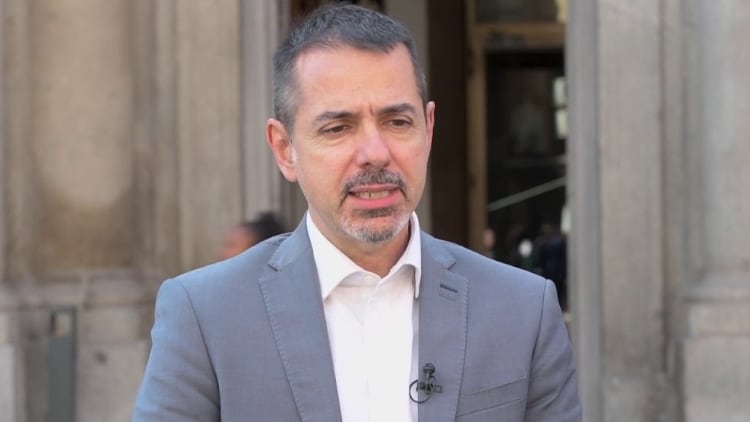Eduardo González
The President of the Government, Pedro Sánchez, reiterated before the UN General Assembly Spain’s support for a “mutually acceptable political solution” to the Western Sahara conflict, without mentioning his unexpected decision to recognize the validity of the Moroccan autonomy plan for Western Sahara. Likewise, as was to be expected, the Algerian and Moroccan delegations were again at loggerheads in New York over this dispute.
“We cannot drag conflicts from the last century,” said Pedro Sanchez during his speech at the General Debate of the 77th session of the United Nations General Assembly, which he delivered in the early hours of Thursday to Friday (Spanish time).
“Therefore, with regard to a very important area for Spain such as Western Sahara, Spain supports a mutually acceptable political solution, within the framework of the United Nations Charter and the resolutions of the United Nations Security Council,” he continued. “In that sense, the work of the UN Secretary-General’s Personal Envoy seems fundamental to me, and I would like to say that he has the full support of the Government of Spain,” he added.
“My country, Spain, will continue to support the Saharawi population in the camps, as it has always done, being the main international donor of humanitarian aid to the Saharawi refugee camps”, he concluded.
Pedro Sánchez made no mention of his decision, conveyed last April 18 in a letter to King Mohammed VI of Morocco, to recognize the Moroccan proposal of autonomy for Western Sahara as “the most serious, credible and realistic basis for the resolution of this dispute”, a radical change of course of Spanish foreign policy which has allowed to overcome the very serious bilateral diplomatic crisis with Morocco at the price of ruining the good relations with Algeria – the main supplier of gas to Spain, a relevant fact in the current energy crisis caused by the war in Ukraine-, which has resulted, among other measures, in the recall for consultations of the Algerian ambassador in Madrid as a sign of protest and in the suspension by Algiers of the Treaty of Friendship, Good Neighborliness and Cooperation.
Morocco and Algeria
On September 20, two days before Pedro Sanchez’s intervention, the Prime Minister of Morocco, Aziz Akhannouch, reiterated before the UN General Assembly “the commitment” of his government to “find a definitive political solution based on the Moroccan initiative for autonomy” and expressed his support, “on the forty-sixth anniversary of the Green March”, to the holding of “a series of round tables in the same format and with the same participants to reach a lasting solution”, stressing that “the serious and well-intentioned participation of Algeria in these round tables and its recognition of its responsibility in the creation and continuation of this artificial conflict is a condition for reaching a definitive political solution”.
Akhannouch also expressed his concern about “the catastrophic humanitarian conditions in the Tindouf camps” and called on the international community to urge Algeria to allow UNHCR to carry out a registration of the inhabitants of the camps.
The words of the chief executive were not well received by the Algerian delegation sent to the UN General Assembly in New York, which on Thursday exercised its right of reply to refute the “false and misleading allegations” of Morocco on the issue of Western Sahara, according to the state news agency APS.
En su declaración, la delegación argelina recordó que, desde el punto de vistas jurídico, el conflicto en el Sáhara Occidental “es y seguirá siendo una cuestión de descolonización hasta que el pueblo del Sáhara Occidental ejerza su derecho inalienable a la autodeterminación mediante un referéndum libre y justo”, tal como establecen “todas las resoluciones de la ONU”, y advirtió de que “la llamada solución de autonomía impuesta como única solución representa un precedente que amenaza los fundamentos de la legitimidad internacional y la Carta de la ONU, y contradice la doctrina bien establecida (de la ONU) sobre la descolonización”. Respecto al “ineficaz e improductivo mecanismo de la mesa redonda”, Argelia afirmó que “Marruecos, fiel a su enfoque colonial, ha explotado este mecanismo en un intento desesperado de confundir la naturaleza del conflicto, para eludir la legitimidad internacional y transformar la naturaleza de este conflicto de una cuestión de descolonización en un conflicto bilateral”.







